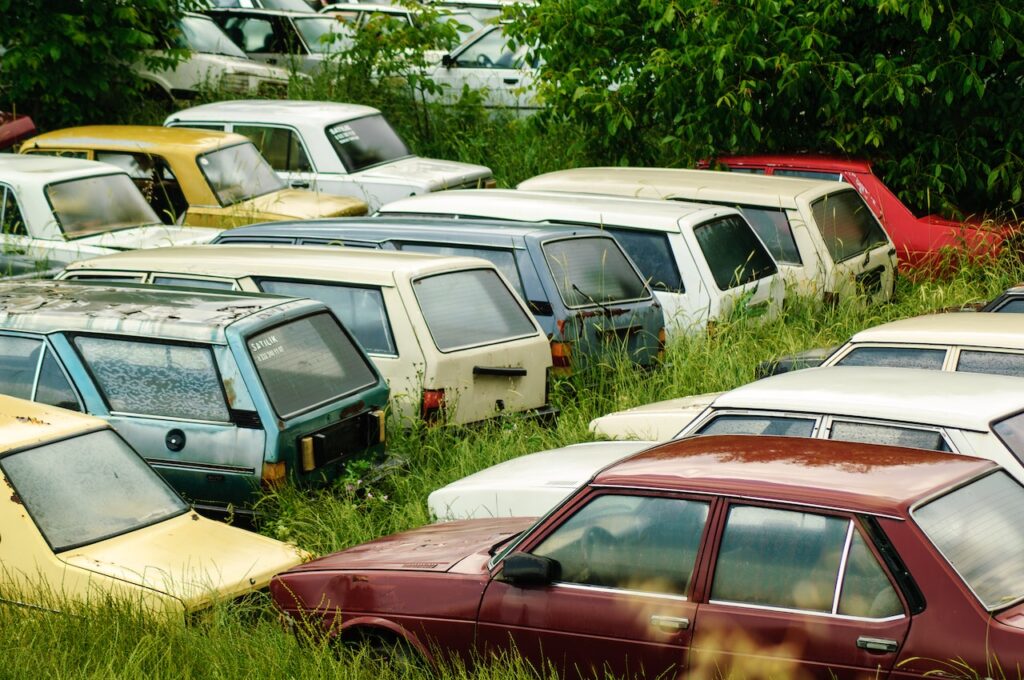When your car faces the unfortunate fate of failing its MOT or simply becoming too costly to repair, the journey of an End of Life Vehicle (ELV) begins. Officially designated as scrap cars, ELVs are subject to the 2004 directive on end-of-life vehicles, a regulatory framework enacted across the EU and the UK. This directive, active in the UK since 2015 despite Brexit, demands that a staggering 95% of each vehicle’s weight be reused, recovered, or recycled to mitigate the environmental impact.
In this intricate web of recycling and environmental responsibility, ScrapMyCar.net emerges as a key player dedicated to ensuring the ethical disposal of your end-of-life vehicle. As an authority in the field, scrap my car offers expert solutions to guide you through the process, from initial valuation to responsible recycling. With a commitment to environmental protection and compliance with all legal requirements, we ensure that your vehicle is handled with the utmost care and responsibility, aligning seamlessly with the circular economy principles driving sustainability in the automotive industry.

High Demand in a Changing Landscape: The Rising Value of Scrap Cars
In recent times, the escalating worth of raw materials and salvageable parts has catapulted these ELVs into high demand. Factors like increased used car prices and fewer accidents due to the pandemic have inclined car owners to repair and keep their vehicles on the road, bolstering the value of these “scrappers.” In response, various firms are now competing vigorously to offer top valuations for your scrap car.
The Importance of Proper Disposal: Authorized Channels and Certificates of Destruction
However, the importance of disposing of a scrap car correctly cannot be overstated. The Vehicle Recycler’s Association (VRA), the UK trade association for vehicle recyclers, emphasizes the significance of using authorized channels. They caution against responding to unverified “any car for cash” offers, often from illegal operators. These unauthorized operations can lead to dire consequences, such as the sale of your car to unknown parties who might misuse it for illegal activities, potentially leaving you liable for penalties.
Authorized vehicle recyclers ensure compliance with all legal requirements and issue a crucial document known as the ‘Certificate of Destruction.’ This certificate releases you from any responsibility for the vehicle, effectively ending your ties with it. Always insist on receiving a receipt and a Certificate of Destruction. Additionally, you must notify the DVLA (Driver and Vehicle Licensing Agency) about the sale of your car, a process that could also result in an automatic road tax refund.

A Changing Market: From Steel and Aluminium to Electric Vehicle Components
The scrap car industry has recently experienced robust pricing, primarily due to the demand for steel and aluminum. However, with the advent of Electric Vehicles (EVs), the dynamics of this market are poised for change. The surge in EVs has elevated the value of components like lithium-ion batteries, electric motors, and motor control units, diversifying the market.
Eco-Friendly Procedures: How Scrap Cars Are Disposed Of
Once a scrap car enters a vehicle recycling facility, stringent procedures ensure eco-friendliness. All fluids, including engine and gearbox oil, brake fluid, coolants, and windscreen washer fluid, are meticulously drained and disposed of using environmentally responsible methods. Traditional car batteries undergo dissection into constituent parts like lead, silver, plastic, and acid, enabling the extraction of valuable components for reuse while appropriately handling the lead and acid.
Recycling and Reuse: Giving New Life to Scrap Car Components
Many vehicle parts are suitable for resale, including lights, wheels, mirrors, interior components, and more. These components are carefully removed, cleaned, tested, and stored for potential reuse. Moreover, EV batteries, though not yet widespread in the scrap car landscape, are also subject to responsible recycling to harness their second-life potential.
Contributing to the Circular Economy: Recycling Beyond Scrap Cars
Circular economy principles extend the lifespan of vehicles by efficiently recycling various materials, reducing waste, and promoting sustainability. Precious metals like platinum, rhodium, and palladium found in catalytic converters are separated and recycled. Traditional car batteries, mostly composed of lead, are readily recycled, while valuable materials are extracted from lithium-ion batteries in EVs for various applications. Copper from electrical components and wiring is reclaimed for reuse, and plastics used in cars can be recycled into a variety of products, from laptop covers to garden furniture.
Tackling Material Downcycling: Audi’s MaterialLoop Project
These processes highlight how ELVs contribute to the “circular economy,” mirroring the recycling practices for plastics, glass, and metals. Even the fabric from seats can find a second life as sound insulation in new cars or other household items. Despite the extensive recycling efforts, certain materials face downcycling, such as steel, which often finds use in the construction industry rather than in new car bodyshells. However, initiatives like Audi’s MaterialLoop project are pushing boundaries by researching ways to recover high-quality materials for use in new cars. This project highlights the automotive industry’s dedication to achieving sustainable, eco-friendly practices in every facet of vehicle production and recycling.
